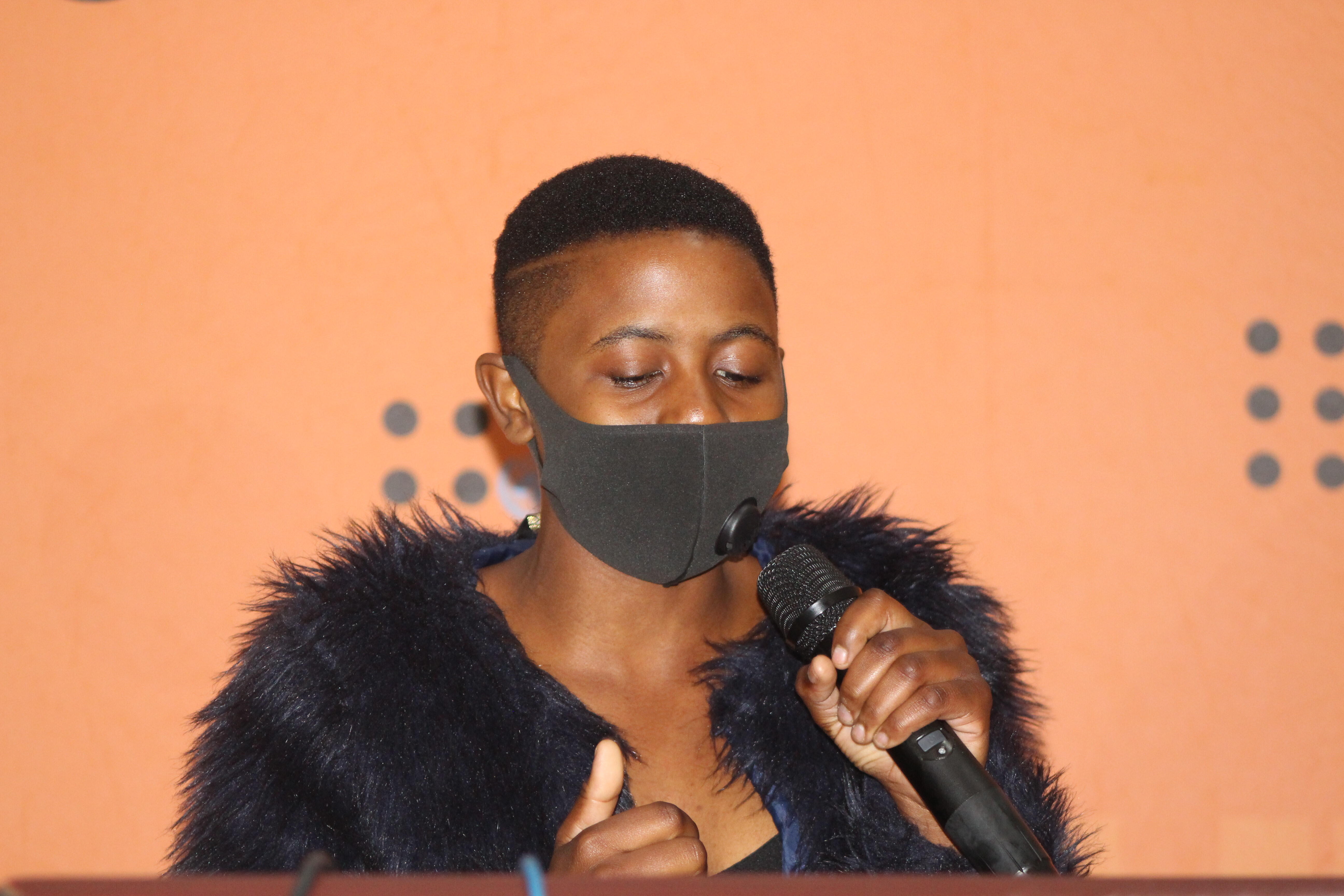In describing what it could take to meaningfully engage youth in the development initiatives in Eswatini, 19 year old Sizolwethu Maphanga mentioned these 3 things she considers as pillars.
“We simply need a listening ear, resources and a little bit of faith,” said the Sizolwethu.
“I believe the youth is fresh, vigorous and innovative. Their ideas, combined with the experience of the older people, can help bring about impactful economic activity in the country.”
Maphanga, who represented Eswatini in the first African Girls Coding Camp Addis Ababa 2018, spoke on behalf of the over 700 000 people comprising the youth population of Eswatini which was celebrated on the 12th of August 2020 on International Youth Day.
This year’s commemoration was held under the theme, “Youth engagement for Global Action”, attracted many youth stakeholders in Eswatini including government ministries civil society organisations and youth led organisations who joined the meeting physically and virtually to ensure compliance with the Eswatini COVID-19 regulations.
Sizolwethu, like her youth cohorts in Eswatini, faces a myriad of challenges including unemployment currently at 46.55% and HIV prevalence currently at 10.2% among girls aged 15-19 years. The current COVID-19 pandemic, with 2242 of the 3894 confirmed cases being young people, worsens the burden on the youth in the country.
In her remarks, UNFPA Head of Office Margaret Thwala-Tembe called for improved investments in youth; a move she described as the best tool to remove all barriers hindering youth from reaching their full potential.
“Our plea goes to all youth stakeholders to priorities youth in all available funding opportunities,” Thwala pleaded.
She also had a special request to the Ministry of Sports, Culture and Youth Affairs to capitalize on their recently revised Youth Policy and Strategy to make reforms on specific fields of interest to the youth.
“UNFPA wishes that the Ministry will use the recently finalized Policy to allocate resources to support Eswatini youth. Meaningful investments in health, education, technology and entrepreneurship guarantees a bright future for all.”
Minister of Sports, Culture and Youth Affairs, Honorable Harries Bulunga, shared some of government’s efforts of ensuring youth participation in the country. “The government is in the quest to find solutions to youth challenges and exploiting opportunities available,” said Bulunga.
“We revived Tinkhundla Youth Associations in almost all 59 centres and launched the Inter Ministerial Committee on Youth development which are platforms for youth to express themselves and streamline their issues at government level.”
The Minister, who was once quoted saying no talking about youth without youth, envisions a bright future for the youth of Eswatini through the aforementioned efforts.
“It is our belief that such efforts will highlight youth issues and help government create informed and harmonized responses and yield positive outcomes not only for our country but Africa as a whole,” Bulunga added.
As the commemoration called for participation of youth in all levels, Primrose Msibi, Chairperson of the Youth Consortium under the Coordinating Assemble of Non-Government Organisations (CANGO), lamented on the absence of youth in at decision making structures.
“We are happy about the 4 women selected to increase women in parliament. Our wish is to see the same being done for the youth. This would ensure representation of the youth during legislative processes of the country.”
Sipho Dlamini, the President of the Federation of People with Disabilities in Eswatini (FODSWA), urged for an inclusive participation of youth. His views were echoed by Eswatini Epilepsy Organisation’s Mbusomuni Mahlalela who emphasised on non-discriminatory engagement practices.
According to Melusi Simelane, the Director of Eswatini Gender Minorities, meaningful engagement of youth does not discriminate by age, race, education, wealth or sexual orientation.
“When facilitating development, engage young people at all level and ensure that minority groups are not left behind,” said Simelane, a popular voice in advocacy for LGBTI rights in Eswatini.
There is a high need for youth engagement in Eswatini. Youth form about 70 percent of the total population and with proper investment in this population, the country can be able to harness the demographic dividend. There is also a huge gap to be filled in terms of youth representation at highest level of authority such as parliament, whose occupants are predominantly older people.


